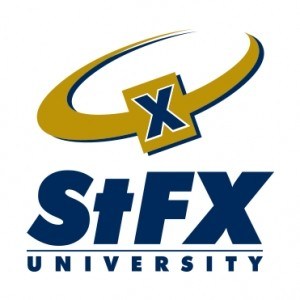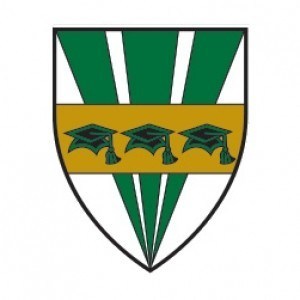Photos of university / #stfxuniversity
The Bachelor of Arts in Economics at St. Francis Xavier University offers students a comprehensive understanding of economic theories, principles, and analytical techniques essential for addressing complex real-world issues. This program is designed to equip students with a strong foundation in microeconomics and macroeconomics, enabling them to analyze individual markets, national economies, and global economic patterns. Through a combination of rigorous coursework and practical applications, students will develop critical thinking, quantitative analysis, and problem-solving skills necessary for careers in business, government, research, or further academic study. The program emphasizes the importance of economic policy and the role that economic analysis plays in decision-making processes across various sectors. Students will explore topics such as economic development, international trade, monetary policy, and fiscal policy, gaining insights into how economic forces shape the world around us. The curriculum also encourages the development of advanced statistical and econometric skills, allowing students to effectively interpret data and construct models to predict economic trends. With access to experienced faculty members and modern resources, students are supported in engaging with contemporary economic issues and conducting independent research. The Bachelor of Arts in Economics at St. Francis Xavier University prepares graduates to enter a diverse array of fields, including finance, consulting, public policy, and international organizations, or to pursue graduate studies. By fostering a deep understanding of economic systems and honing analytical capabilities, this program ensures that students are well-equipped to contribute thoughtfully and effectively in a globalized economy. The program's flexible structure allows students to tailor their studies to their interests, combining economics with minors or electives in areas such as political science, business, or environmental studies, further enhancing their interdisciplinary perspective. Overall, the Economics program at St. Francis Xavier University provides a rigorous academic experience that combines theoretical knowledge with practical skills, preparing students for meaningful careers and lifelong learning in the dynamic field of economics.
The Bachelor of Arts in Economics at St. Francis Xavier University offers students a comprehensive exploration of both theoretical and applied economic principles. The program is designed to develop critical thinking, analytical skills, and a deep understanding of economic systems and policy issues that impact societies locally and globally. Throughout the program, students will engage with core courses in microeconomics and macroeconomics, providing a strong foundation in understanding individual markets, consumer behavior, firm dynamics, and broader economic trends. In addition, the curriculum includes courses in economic theory, quantitative methods, and statistics to equip students with the tools necessary for data analysis and empirical research.
Specialized courses allow students to delve into various economic fields such as development economics, environmental economics, health economics, and international economics. The program emphasizes the importance of practical applications, including opportunities for internships, research projects, and community engagement activities that connect students with real-world economic issues. Students will also learn about economic policy, regulation, and the role of government in economic stability and growth.
The faculty consists of experienced economists and researchers dedicated to providing high-quality instruction and mentorship. Students have access to modern facilities and resources, including computer labs with statistical software and online learning platforms. The program encourages a global perspective, fostering an understanding of how economic decisions affect societies across different contexts and regions. Graduates of the Economics program are well-prepared for careers in areas such as finance, public policy, consulting, international organizations, and further studies in graduate or professional programs. With a curriculum balanced between theoretical rigor and practical relevance, the Economics program at St. Francis Xavier University aims to produce graduates who are equipped to analyze complex economic issues and contribute meaningfully to their communities and professions.
The Bachelor of Arts in Economics at St. Francis Xavier University requires students to complete a comprehensive curriculum designed to provide a strong foundation in economic theory, quantitative analysis, and real-world applications. The program typically consists of core courses in microeconomics and macroeconomics, offering students an understanding of individual markets, economic systems, and macroeconomic policy. In addition to these foundational courses, students are encouraged to engage in advanced topics such as international economics, development economics, and economic policy analysis to broaden their perspectives.
To fulfill degree requirements, students must complete a series of electives in related disciplines, which may include political science, mathematics, statistics, or other social sciences. This interdisciplinary approach ensures a well-rounded education and the development of analytical skills necessary for careers in government, business, or further academic pursuits. The program emphasizes quantitative skills, requiring students to take courses in calculus and statistics to enhance their data analysis capabilities essential for economic research and decision-making.
Students are also expected to participate in practical experiences such as internships and research projects, providing opportunities to apply theoretical knowledge in real-world settings. The program may offer specialization options or concentrations that allow students to focus on areas such as public policy, international trade, or financial economics. Additionally, students must complete a capstone course or project that synthesizes their learning and demonstrates their ability to analyze complex economic issues.
Throughout their studies, students are encouraged to develop critical thinking, problem-solving, and communication skills through seminars, presentations, and writing assignments. The program also promotes engagement with current economic issues impacting society at local, national, and global levels. Typical pathways for program completion include a mix of coursework, independent research, and experiential learning, culminating in a degree that prepares graduates for diverse professional roles or graduate studies in economics or related fields.
The Bachelor of Arts in Economics at St. Francis Xavier University offers a range of financing options to support students throughout their academic journey. Tuition fees for undergraduate programs vary depending on the student's residency status, with domestic students benefiting from relatively lower rates compared to international students. For Canadian residents, the annual tuition fee typically ranges from approximately CAD 7,000 to CAD 8,000. International students can expect higher tuition fees, usually around CAD 12,000 to CAD 14,000 per year. In addition to tuition, students should budget for various ancillary costs such as textbooks, supplies, housing, and personal expenses, which can add several thousand dollars per year.
St. Francis Xavier University provides a variety of financial aid programs to assist students in funding their education. Scholarships and bursaries are available based on academic achievement, financial need, and other criteria. Nova Scotia residents may have access to provincial government funding and student assistance programs, including the Nova Scotia Student Assistance Program, which offers loans, grants, and work-study opportunities. The university also offers entrance scholarships automatically awarded to high-achieving students upon admission, as well as departmental scholarships specific to economics students.
Work-study programs allow eligible students to earn income while gaining valuable work experience related to their field of study. Students are encouraged to explore external scholarships offered by government agencies, private foundations, and community organizations. Loan programs are also accessible to most Canadian students through federal and provincial student loan initiatives, which can significantly offset education costs.
St. Francis Xavier University participates in various financial aid initiatives aimed at making higher education accessible and affordable. International students are also encouraged to seek scholarships, assistantships, and private funding sources. Additionally, students are advised to contact the university's Financial Aid Office to explore personalized support options and to receive guidance on the application processes for available funding. Overall, the university strives to provide comprehensive financial resources to help students manage the costs associated with studying economics and to facilitate a smooth academic experience.
The Bachelor of Arts in Economics at St. Francis Xavier University offers students a comprehensive understanding of economic theory, quantitative methods, and their applications in various sectors. The program is designed to develop analytical, critical thinking, and problem-solving skills essential for careers in business, government, non-profit organizations, and further academic pursuits. Students engage with core courses such as Microeconomics, Macroeconomics, and Econometrics, providing a strong foundation in economic analysis. Advanced electives allow specialization in areas like international economics, economic development, public policy, and environmental economics. The curriculum emphasizes quantitative skills, including statistical analysis and economic modeling, often integrating computer-based tools and software to enhance data analysis capabilities.
The program encourages experiential learning through internships, research projects, and collaborations with local businesses and government agencies, offering practical insights into economic issues. Faculty members are actively involved in research and often integrate their findings into their teaching, ensuring students receive current and relevant education. The university promotes small class sizes, fostering interactive learning environments where students can engage directly with instructors and peers.
Graduates of the program are well-equipped for careers in economic analysis, policy development, financial services, and consultancy. Many students choose to continue their education in graduate programs in economics, business, public administration, or related fields. The university also provides various support services, including academic advising and career counseling, to assist students in their academic and professional development. Overall, the Economics program at St. Francis Xavier University aims to prepare students for impactful careers by combining rigorous academic training with practical experience and interdisciplinary learning opportunities.

